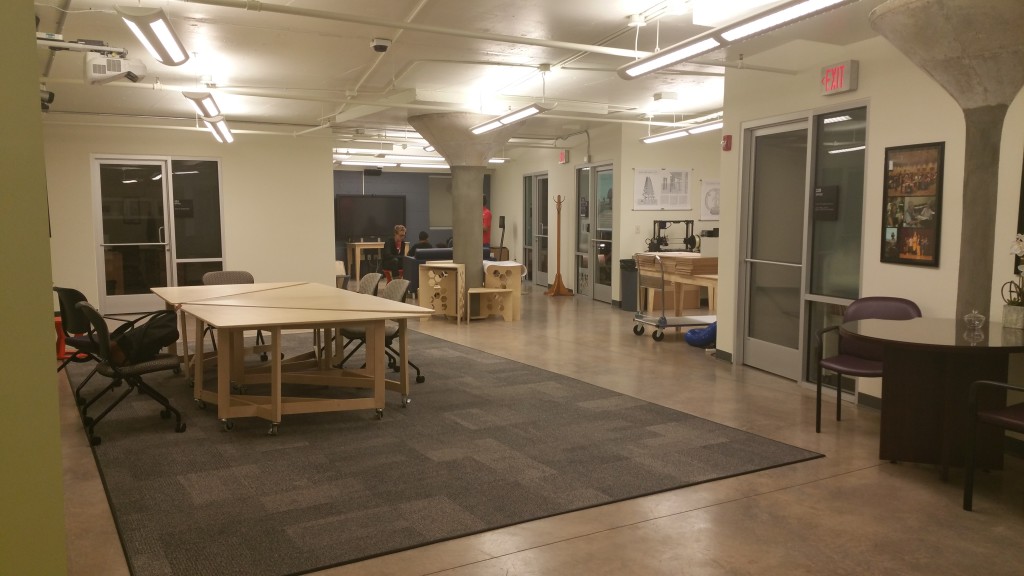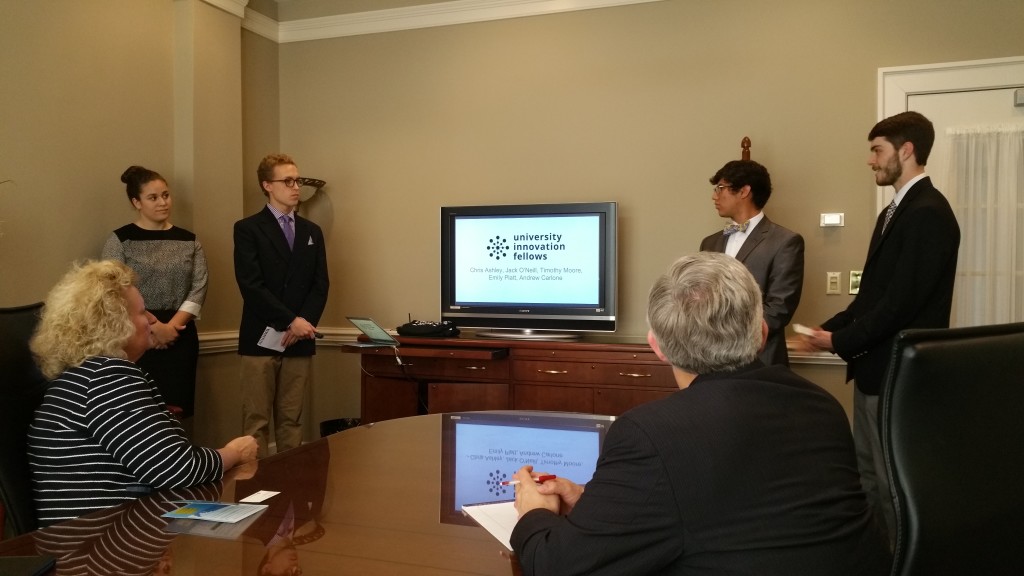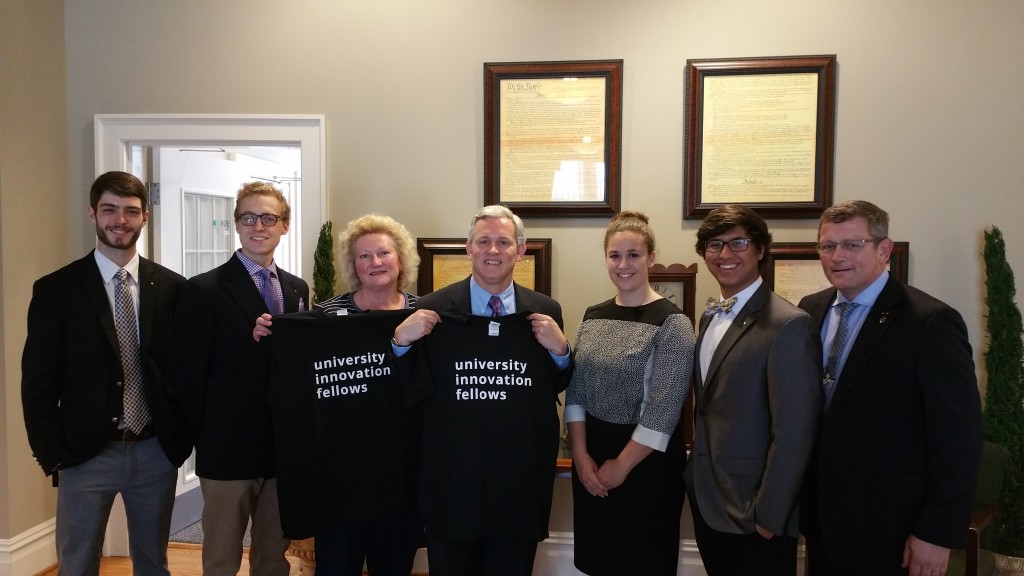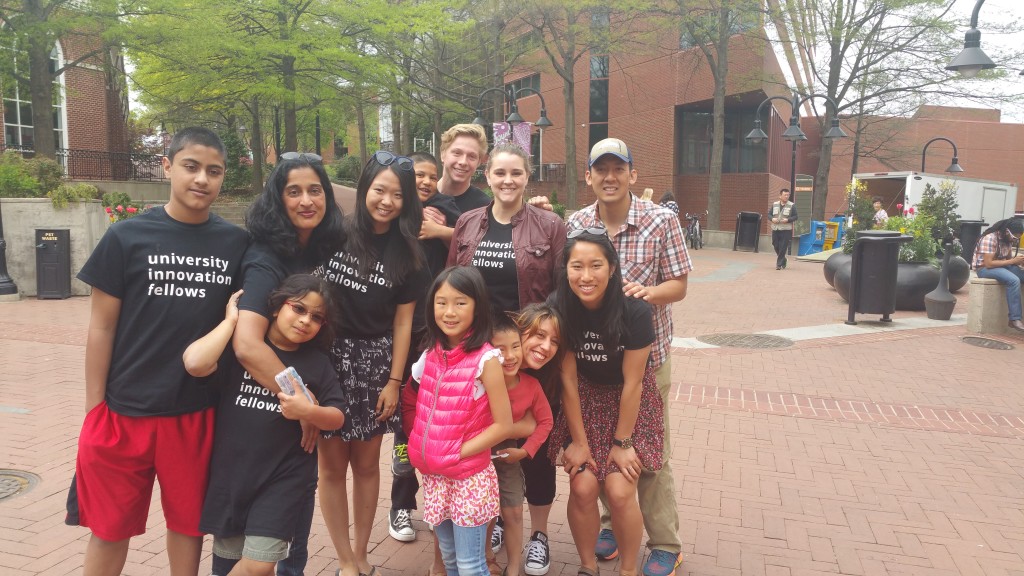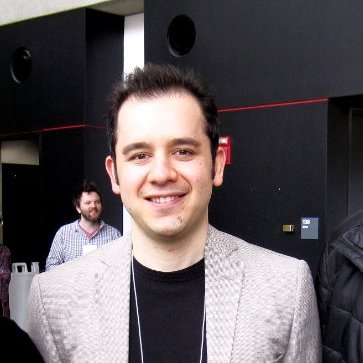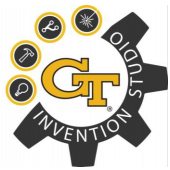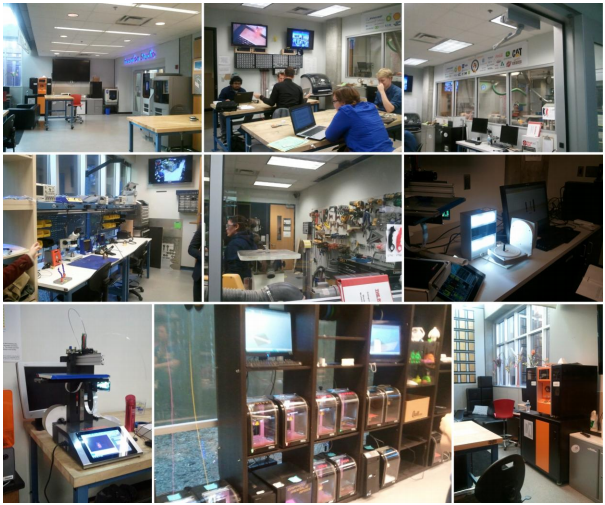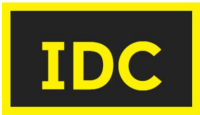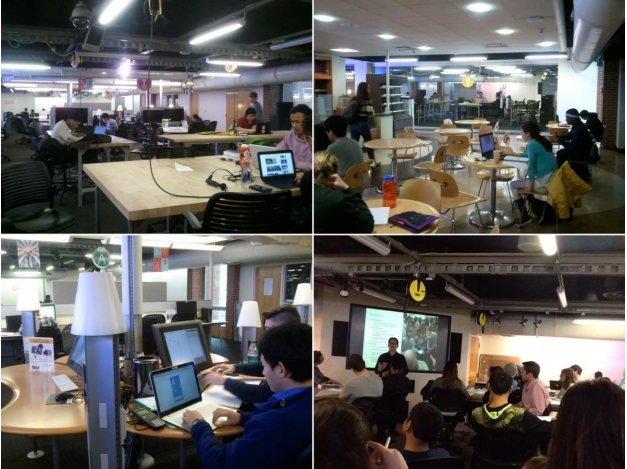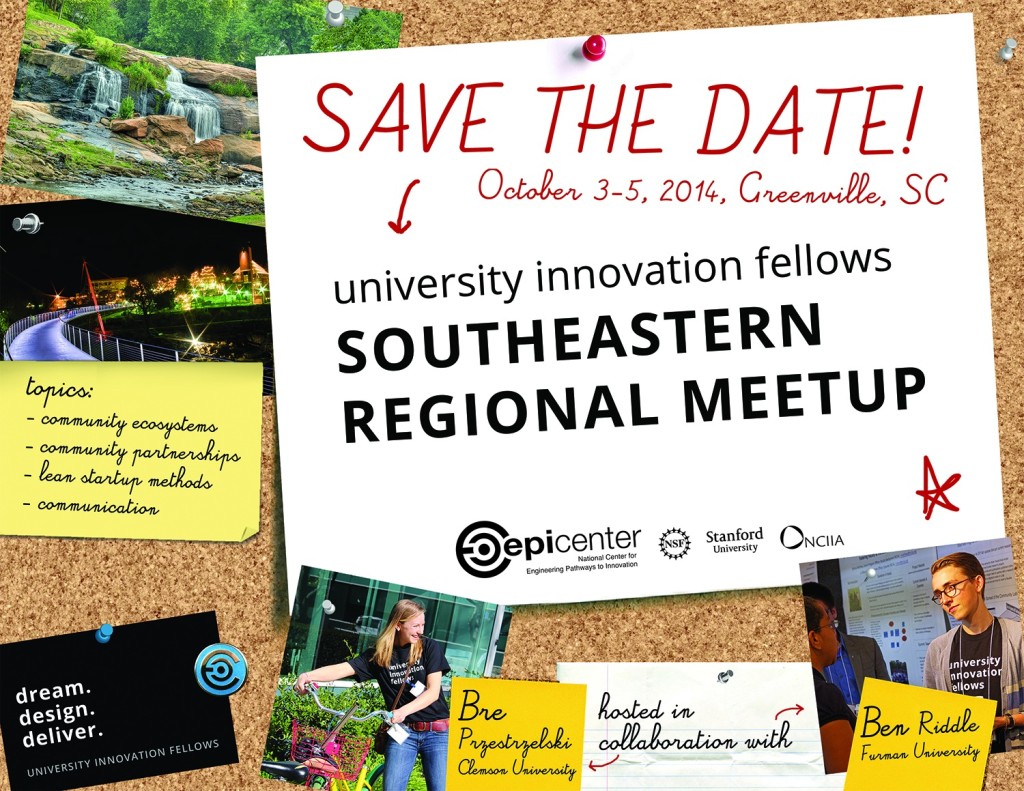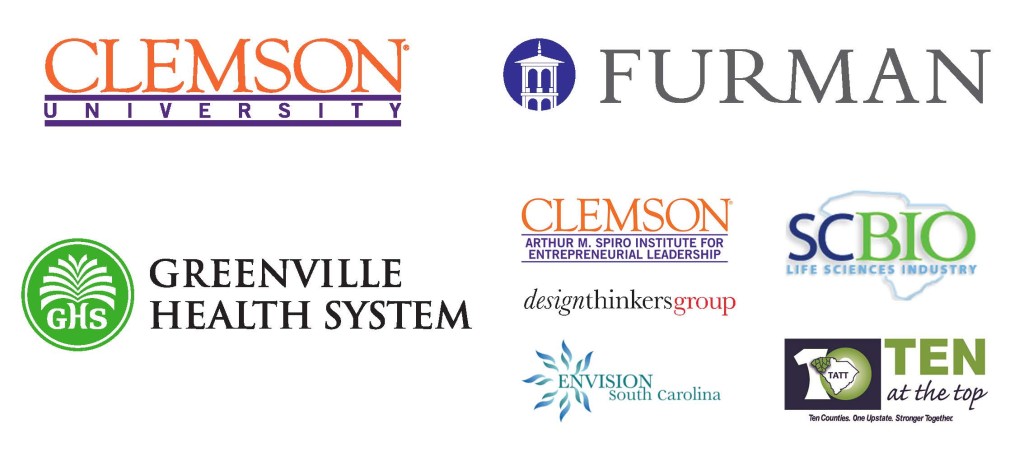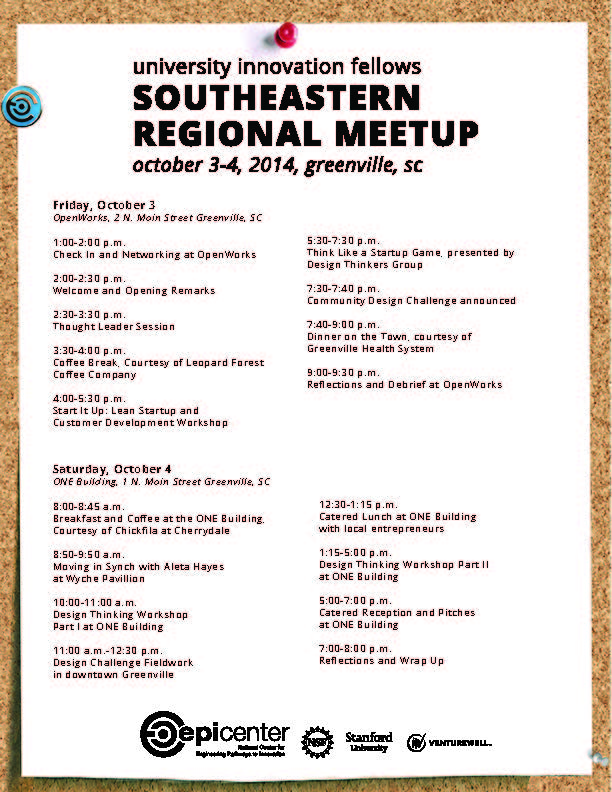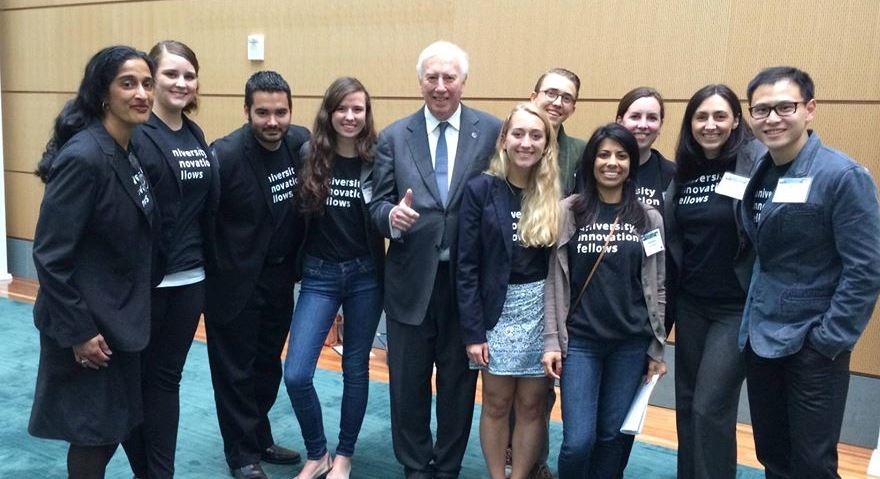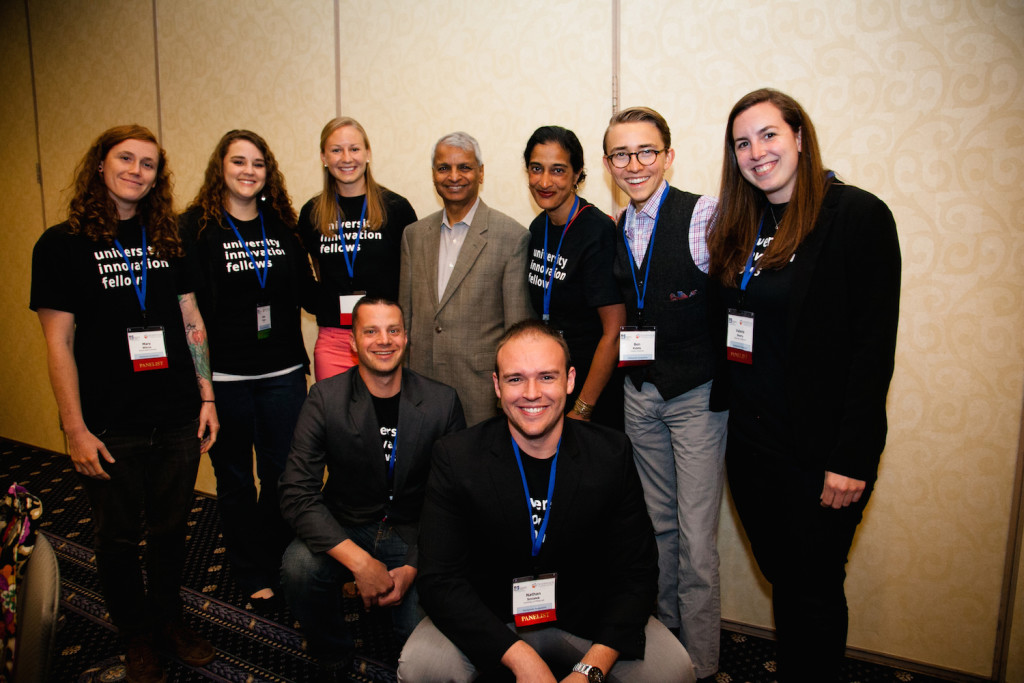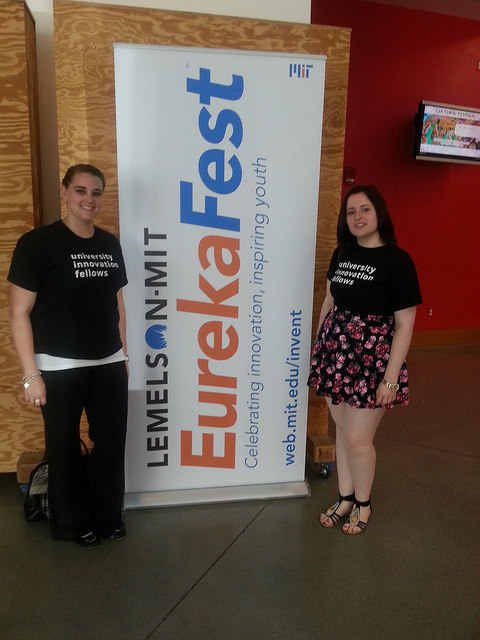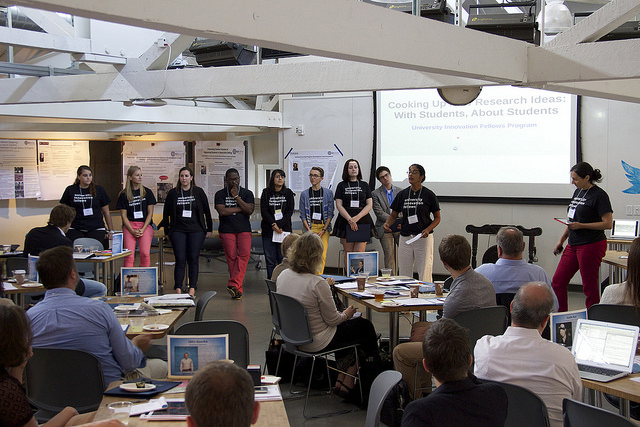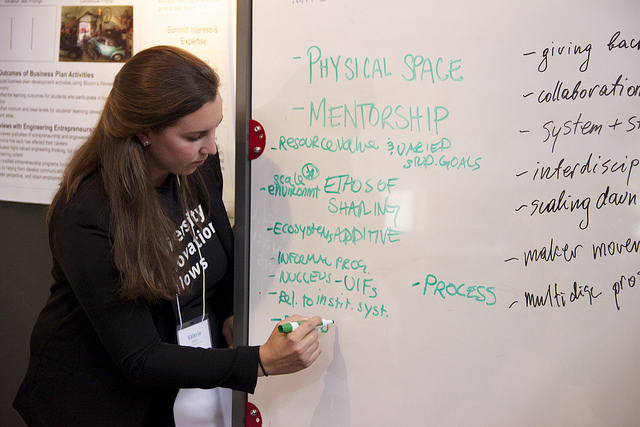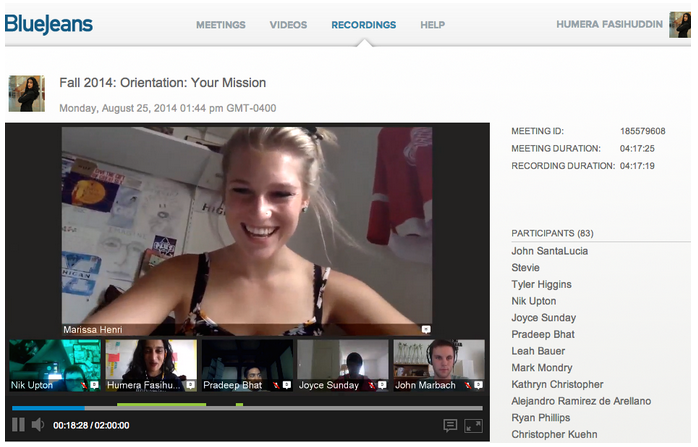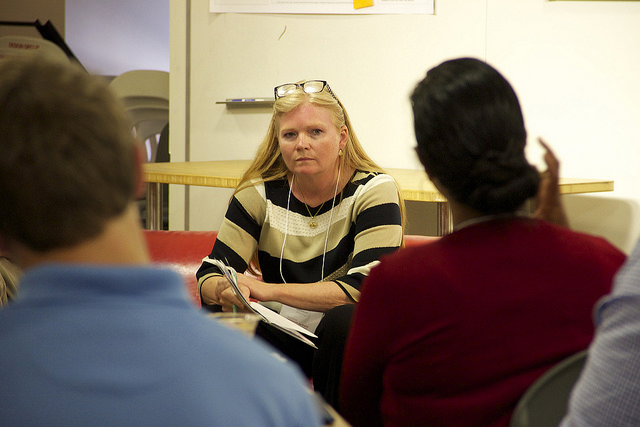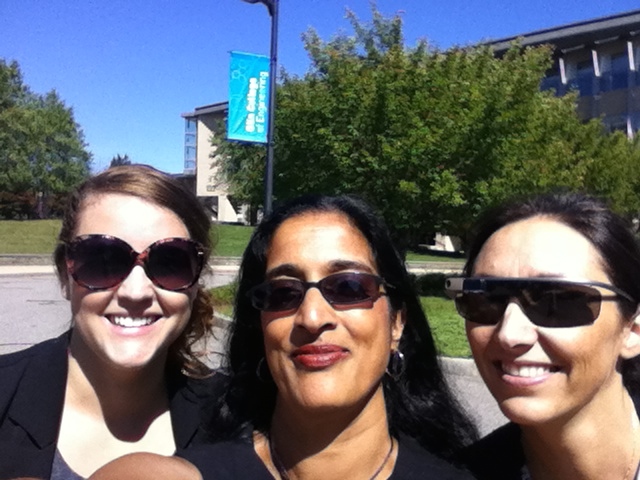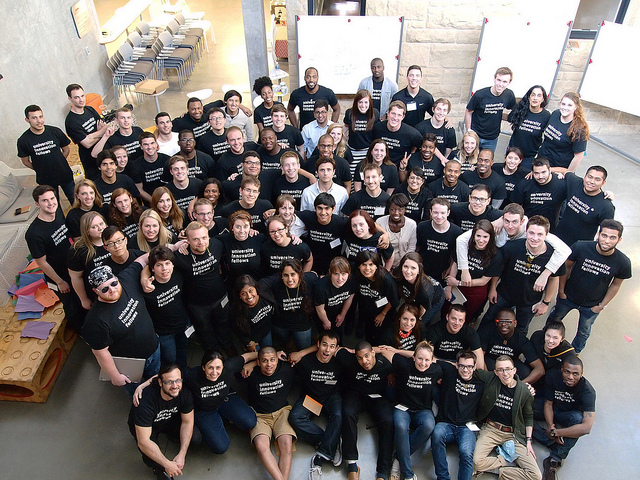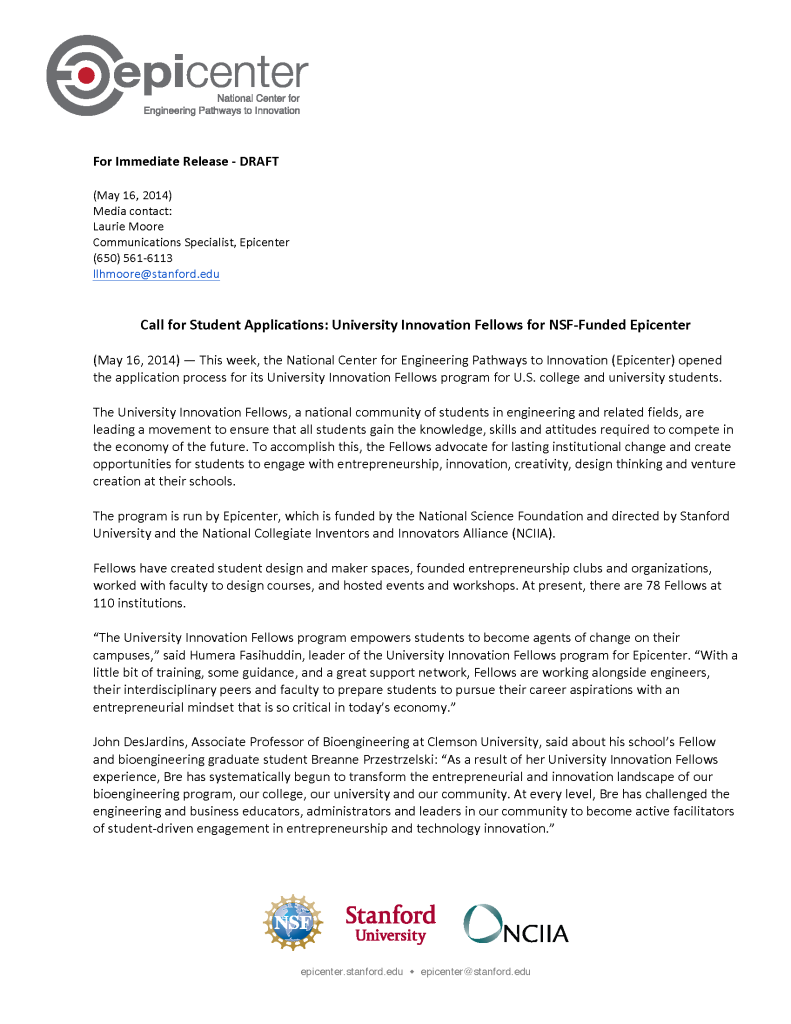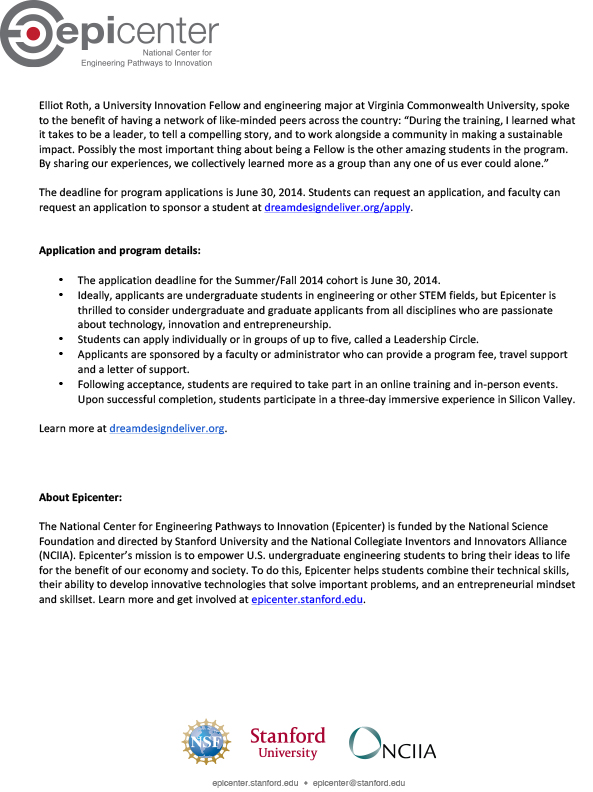Designing Mobile Clinic with the Community
Connecting universities and disciplines around formal/informal learning opportunity
By Ilya Avdeev, PhD—Faculty Innovation Fellow; Alex Francis, PhD and Antonina Johnston—University Innovation Fellows from University of Wisconsin-Milwaukee
During the summer 2022, our human-centered design lab’s team at the Medical College of Wisconsin (MCW) was approached by the Froedtert Hospital leadership with an intriguing proposal to get involved in designing a future mobile health clinic addressing women’s health in the community with limited access to healthcare. Moreover, the question on everyone’s mind was how might we involve the broader community to be involved in the clinic design from the start? As academics, we saw an opportunity to tie this real-world project to curriculum. Complexity of the task offered us a chance to engage medical, engineering, nursing, art and design students in interprofessional formal and informal learning of design principles and their practical application.
An 18-inch rule
Resembling an unfinished tiny house at the framing stage, everything in the 8-foot-tall, 24-foot mobile clinic model displayed for two months in the MCW lobby was designed to be moved around, including mockups of mammography equipment and other OB-GYN elements constructed of foam core boards. A tool for learning and discovery, the mockup model supported creative process and facilitated full-scale exploration of design possibilities.
Interestingly, the mockup model was also considered a fire hazard because it was built within 18 inches of the ceiling. We used this unexpected hazard, reported by the fire department, as a metaphor for pushing boundaries and testing the limits of what is traditionally accepted. This project represents an experiment in collaborative, community-driven design, where we work with the community, not simply design for them.
Mobile clinic development project – a platform for experimentation
We saw tremendous potential for creative exploration and discovery when Dr. Mark Lodes and the Population Health Team proposed last summer that the Human-Centered Design Lab participate in developing the mobile clinic. This project clearly would challenge our ideas and assumptions about academic collaboration, the adaptability of medical curriculum, and the creative confidence of stakeholders involved, including Milwaukee community members and organizations, and an intricate network of MCW/Froedtert Health individuals.
For the past six months, the following questions have guided and driven our work forward:
· How can we involve a wide range of diverse stakeholders in our design process and empower their creativity and sense of control?
· What would a collaboration between University of Wisconsin-Milwaukee (UWM) and MCW students look like?
· How can we balance the dynamic nature of a real-world project with a structured curriculum to benefit learners?
· How can we bring value to the Froedtert team developing the clinic through innovative design-based activities?
· What can we learn about incorporating healthcare design projects into medical education?
Expanding our design team
Designing with the community, not just for them, is the cornerstone of our approach. Developing a mobile clinic is like putting together a puzzle where the pieces are not yet clear, and the final picture is uncertain. Creativity and innovation are required to overcome the ambiguity.
We took a unique approach by expanding our design team beyond the Population Health and Human-Centered Design Lab teams. We included anyone from the stakeholder map interested in contributing their expertise and ideas to the problem space (issues such as access to healthcare, managing chronic conditions, insurance coverage gaps, staffing, scheduling, safety, and business models) and the solution space (clinic layout, workflow, atmosphere, technology, services offered, etc.). There were 150 designers in total!
This approach is like citizen science or distributed scientific inquiry projects, where the collective intelligence of many individuals is more impactful than the brilliance of a few. By engaging stakeholders early on, we also cultivate buy-in and support for the pilot implementation and future iterations.
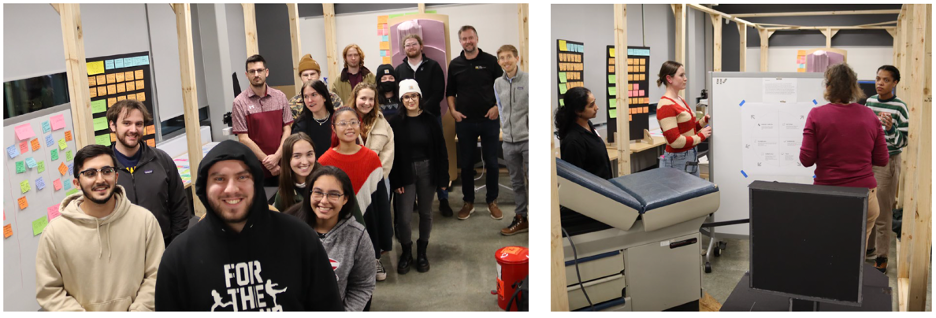
Design sprints – exploring problem and solution spaces through play
To engage a broad range of stakeholders and tap into their collective imagination, we arranged a series of 90-minute design sprints. Over the course of multiple sprints, 100+ designers were invited to collaborate in teams of four to tackle 10 different scenarios centered around a person in need of medical and social care at a mobile clinic.
To guide the design process, each team was provided with a framework prompting them to consider the needs and wants of the patient, necessary actions and workflow, clinic layout and ambiance, and technology elements involved. Using low-resolution prototyping techniques, such as brainstorming and building mockups with LEGO blocks and foam core, participant teams rapidly designed the clinic for each scenario. At the end of each sprint, each team presented their ideas and “walked” us through their clinic prototypes, providing valuable insight and inspiration for the design process.
This activity allowed us to equally engage experts, novices, providers, and patients in creative play. By randomly assigning teams and encouraging diverse participation, we were able to cultivate an environment of imaginative play, where experts, novices, patients, and providers alike could contribute. These design sprints not only highlighted the complexity of the design challenge but also demonstrated the passion and commitment of the community toward making this mobile clinic a reality.
Collaboration with students and curriculum
This project also provided a valuable opportunity to bring together students from different disciplines and backgrounds. Engineering and design students from UWM worked together to design and construct clinic models as part of their coursework in the ME-405/ART-405 Product Realization course, taught by Drs. Avdeev and Francis. UWM and medical students from the Health Systems Management and Policy Pathway participated in joint design workshops, and graduate nursing students from the UWM College of Nursing played a critical role in piloting the design sprints at UWM before the clinic model was moved to MCW. Medical students also facilitated and participated in the design sprints at MCW, making this a truly interdisciplinary and collaborative effort.
Including students in the design team proved to be highly enriching and fulfilling. However, we also encountered challenges in aligning this dynamic project with the structured medical curriculum. This highlights the need for reimagining and streamlining integration of such projects into the curriculum in the future.
What Have We Learned?
More than 500 ideas were captured during 6 design sprints. We developed a map of design variables that helped focus ideation on critical areas of the clinic (Figure 1). After capturing 500 ideas, we analyzed the data and synthesized the following themes or idea clusters (Figure 2). We then clustered ideas within a theme (Figure 3).
What’s Next?
With a talented and diverse design team made up of both community and internal stakeholders, we have been gifted with a wealth of ideas and perspectives. Our challenge now is to carefully put these pieces together to support the mobile clinic development project. Our goal is to produce a result that will not only inform and inspire the development team, but also have a tangible and meaningful impact on the communities it serves.
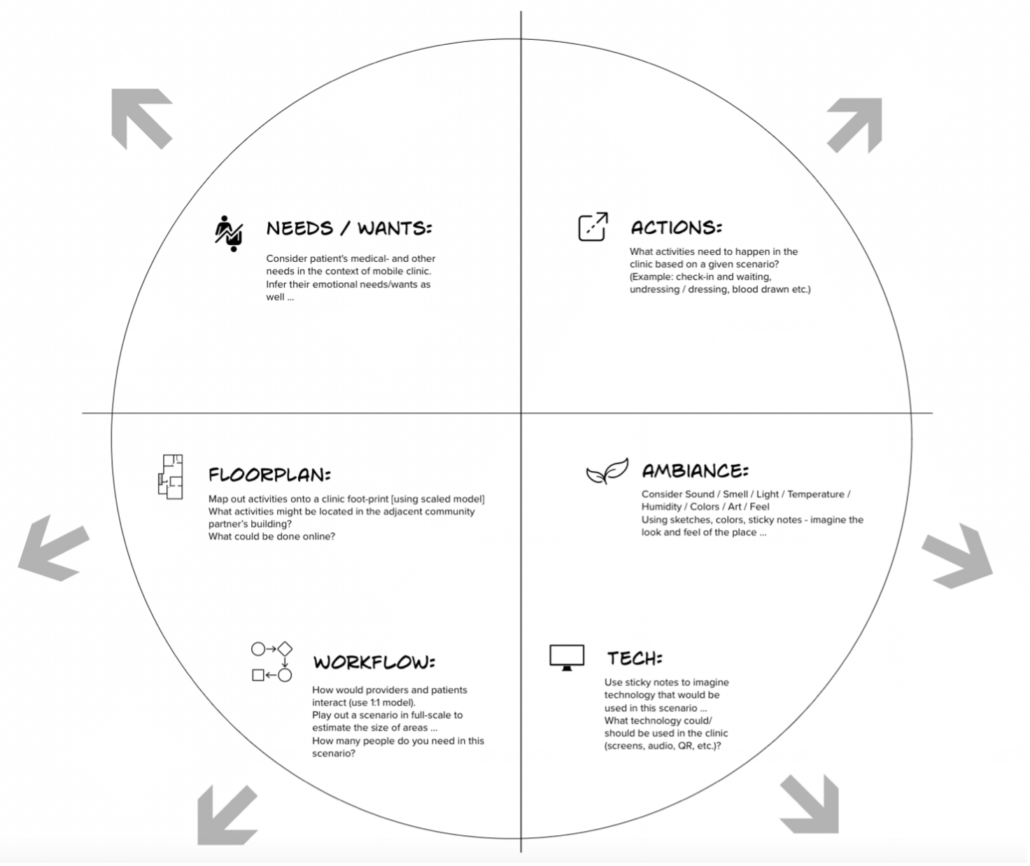
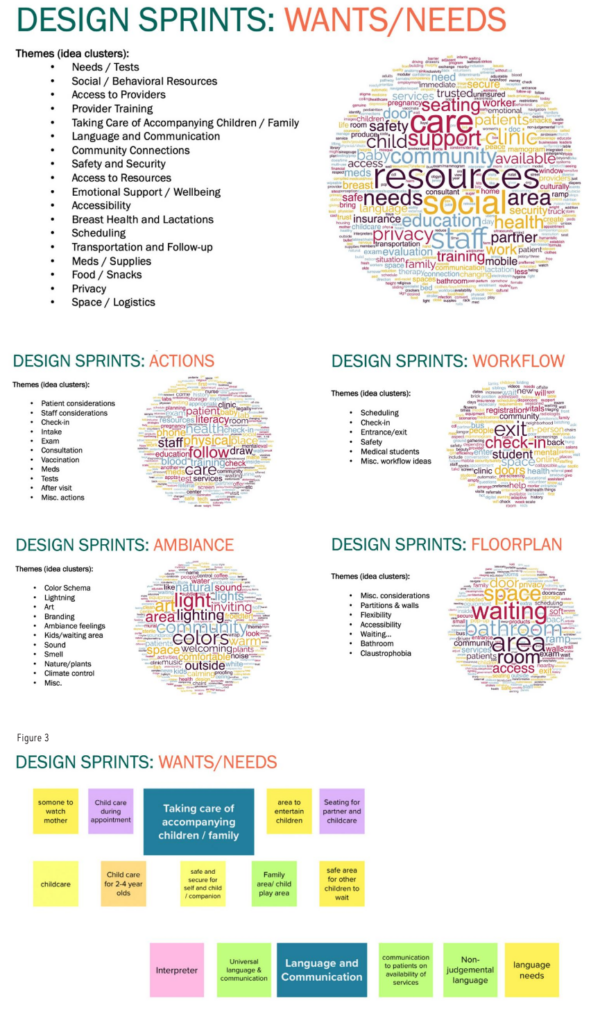
The original article can be found in the Enhancing the Higher Ed Ecosystem section of the 2022-2023 Change Forward Journal— Visions and Voices of Higher Education’s Future.

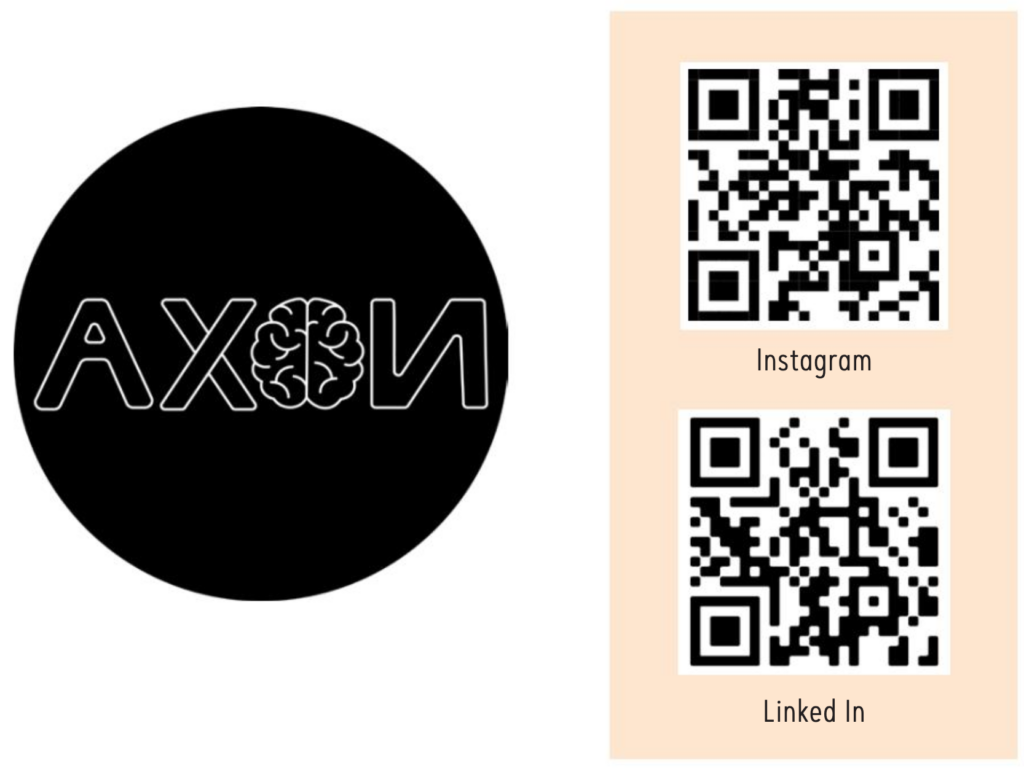
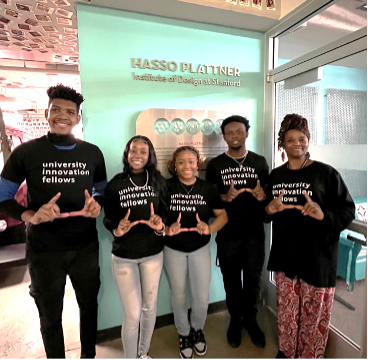
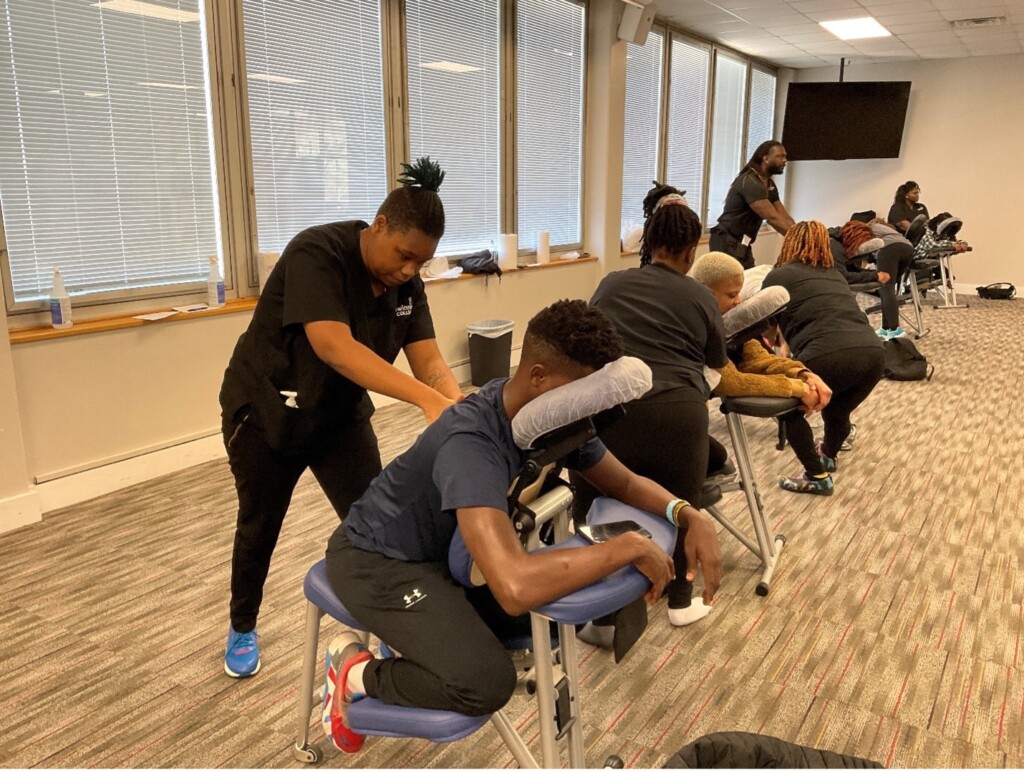
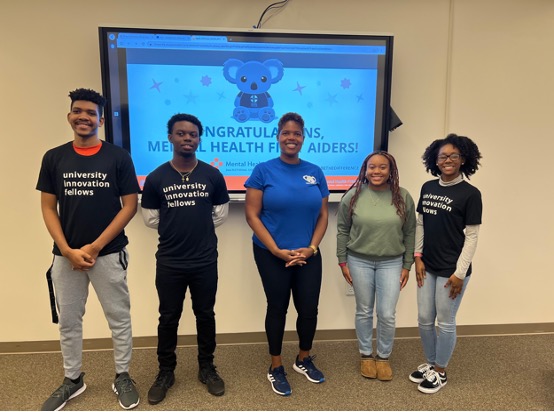
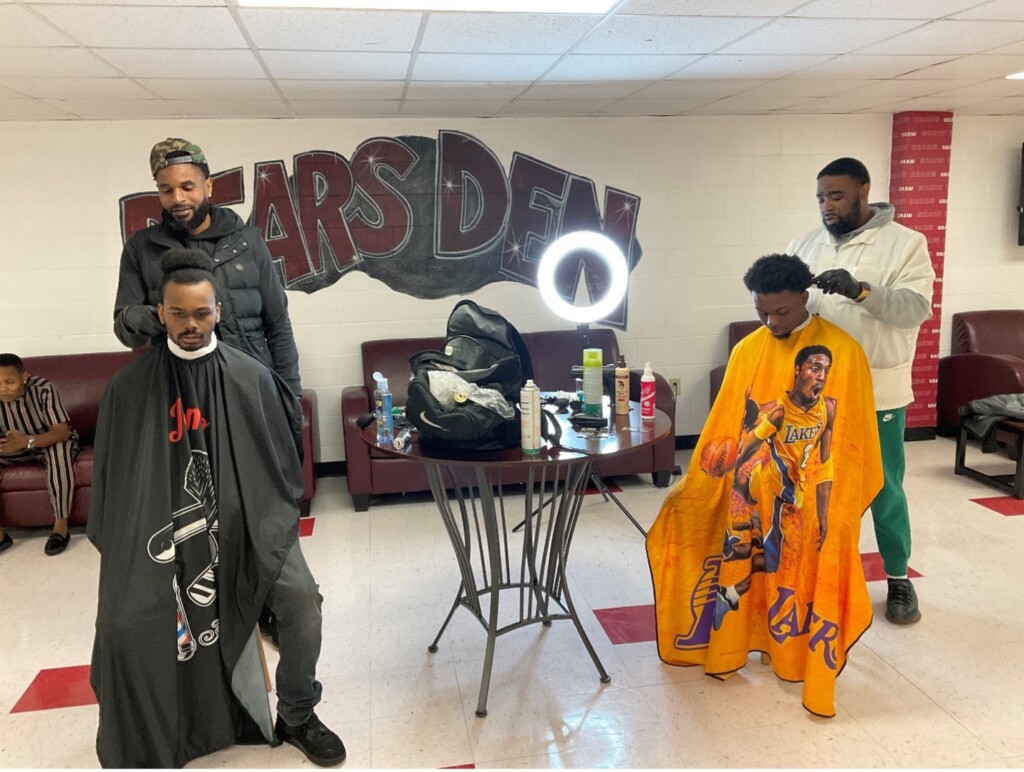
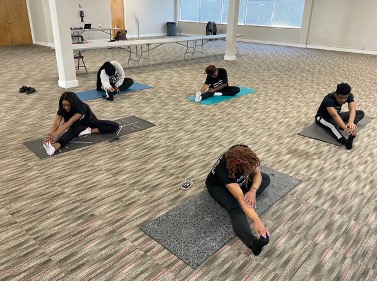
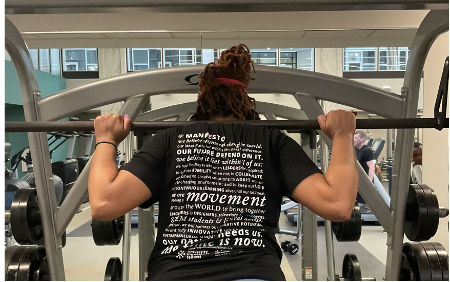
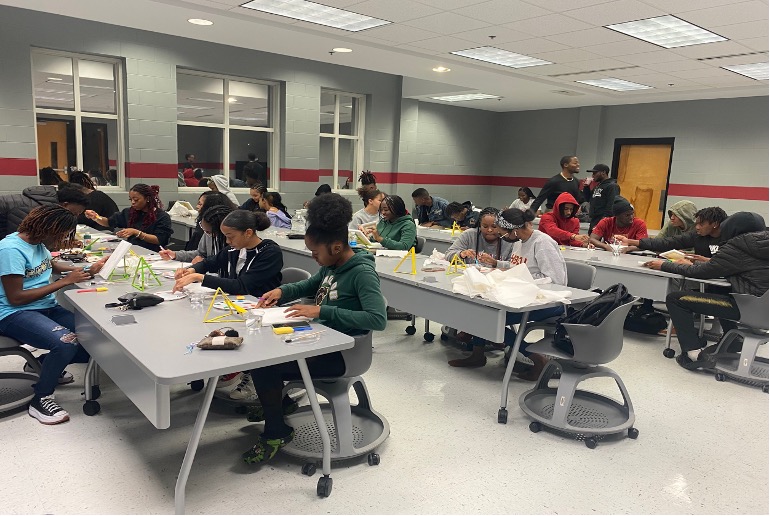
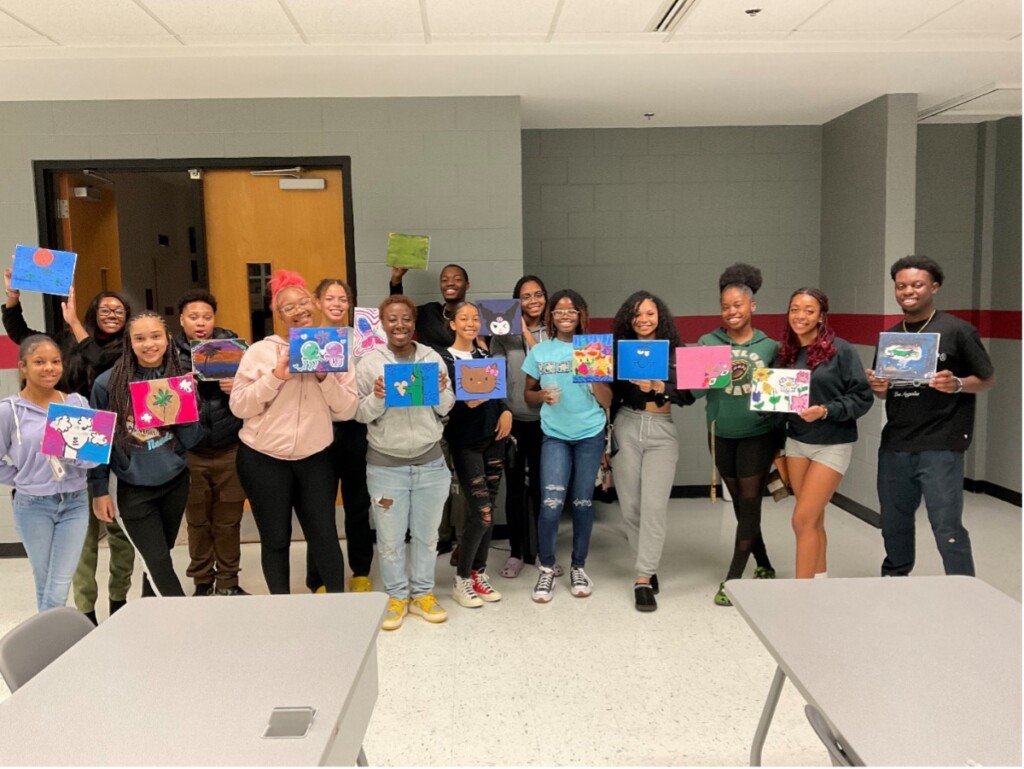
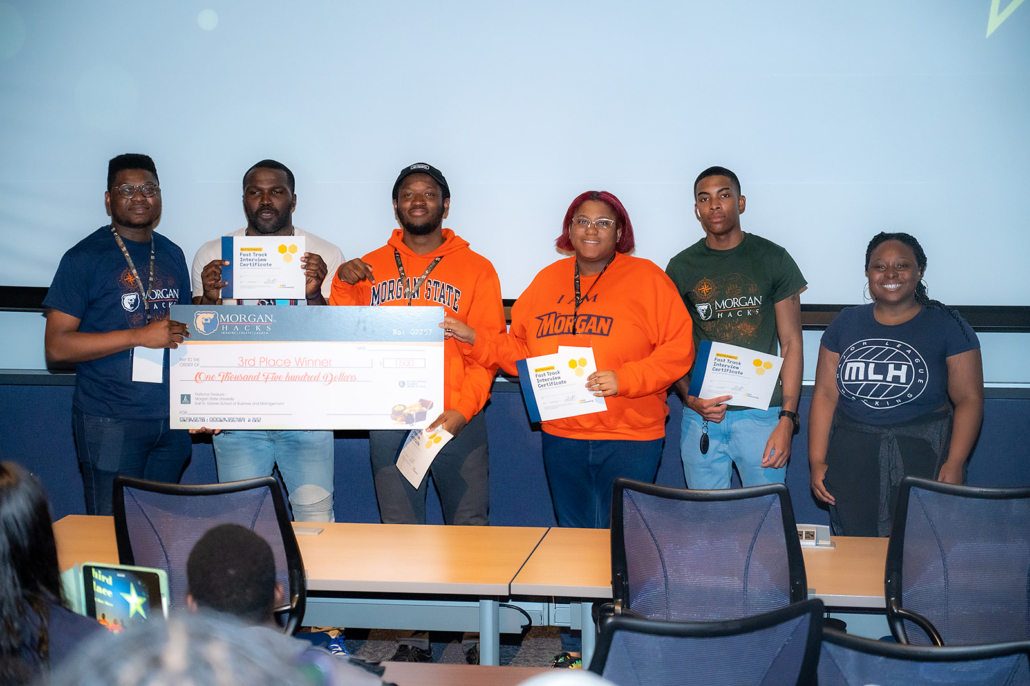
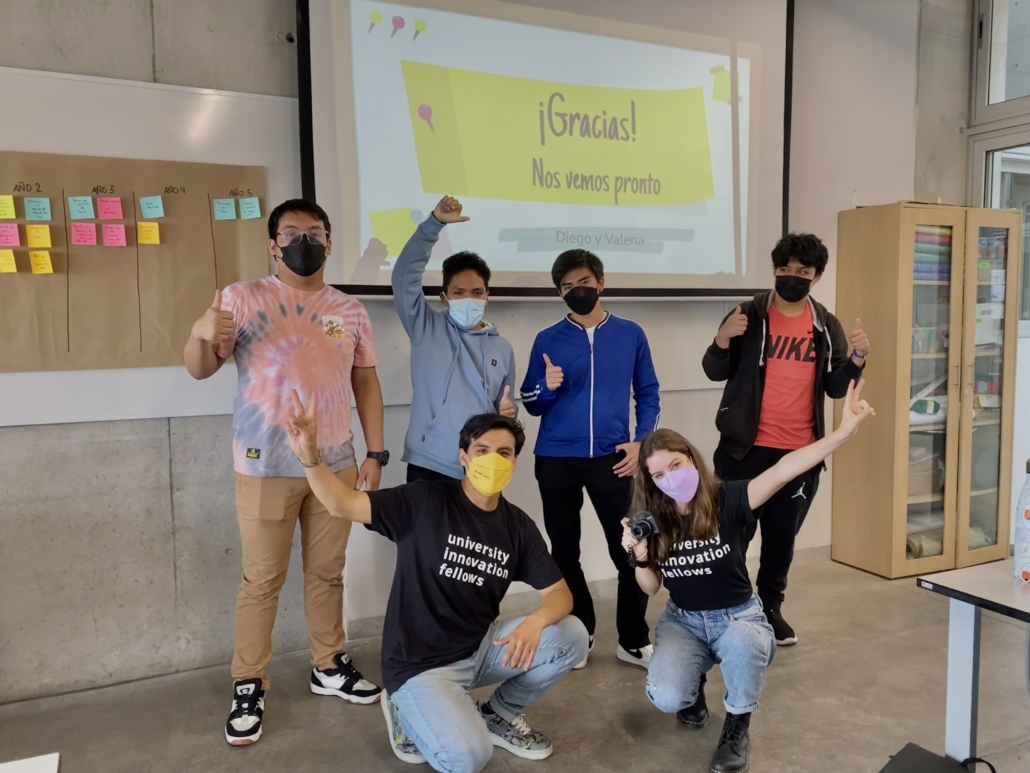
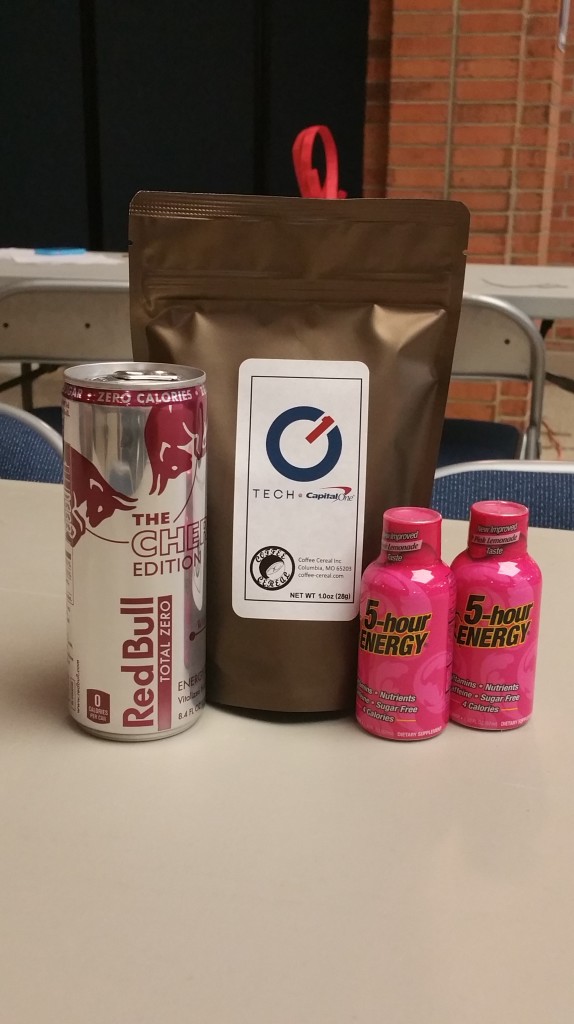 *A play on Virginia’s state motto, “Virginia is for Lovers.”
*A play on Virginia’s state motto, “Virginia is for Lovers.”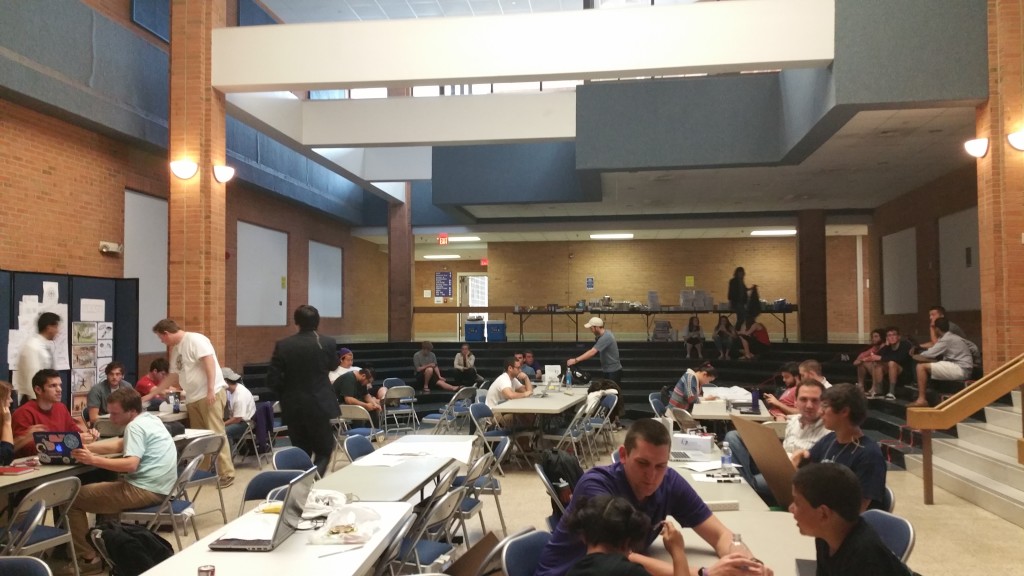
 Fourteen teams had formed and had 5 minutes to present with an additional 2 minutes of Q&A from the panel of judges. The teams had developed ideas from aiding local food producers market where they would be selling local produce to gym powered greenhouses to apps organizing medical emergency information to a mobile solution for HR companies on-boarding their new hires. The winner of Bluestone Hacks was Volterre, a mobile app designed to predict epidemics. The software monitors moods, social networks and google searches in a geo-targeted location to identify the spread of sickness in order to avoid epidemics. The winner was a senior at JMU studying physics.
Fourteen teams had formed and had 5 minutes to present with an additional 2 minutes of Q&A from the panel of judges. The teams had developed ideas from aiding local food producers market where they would be selling local produce to gym powered greenhouses to apps organizing medical emergency information to a mobile solution for HR companies on-boarding their new hires. The winner of Bluestone Hacks was Volterre, a mobile app designed to predict epidemics. The software monitors moods, social networks and google searches in a geo-targeted location to identify the spread of sickness in order to avoid epidemics. The winner was a senior at JMU studying physics.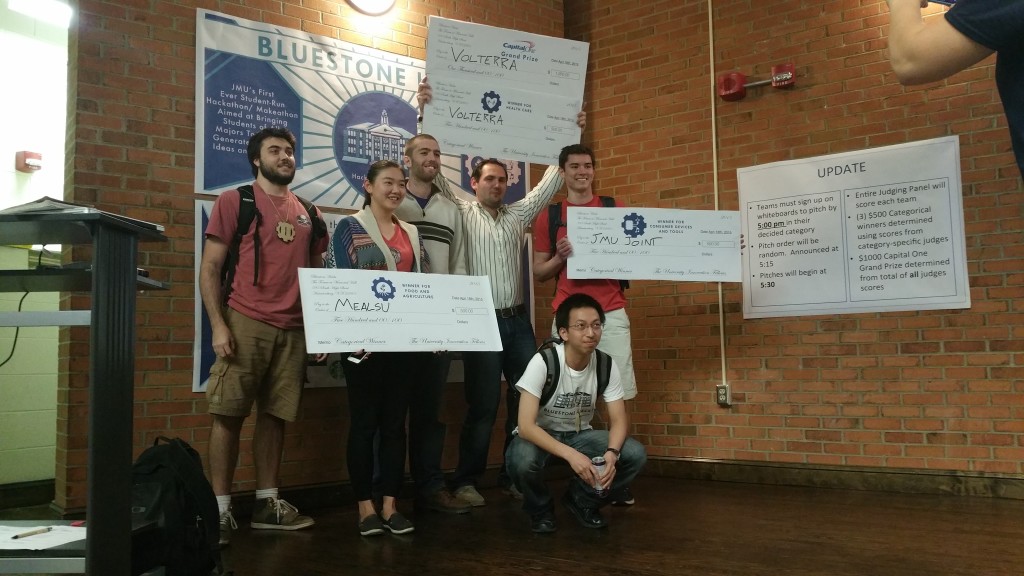
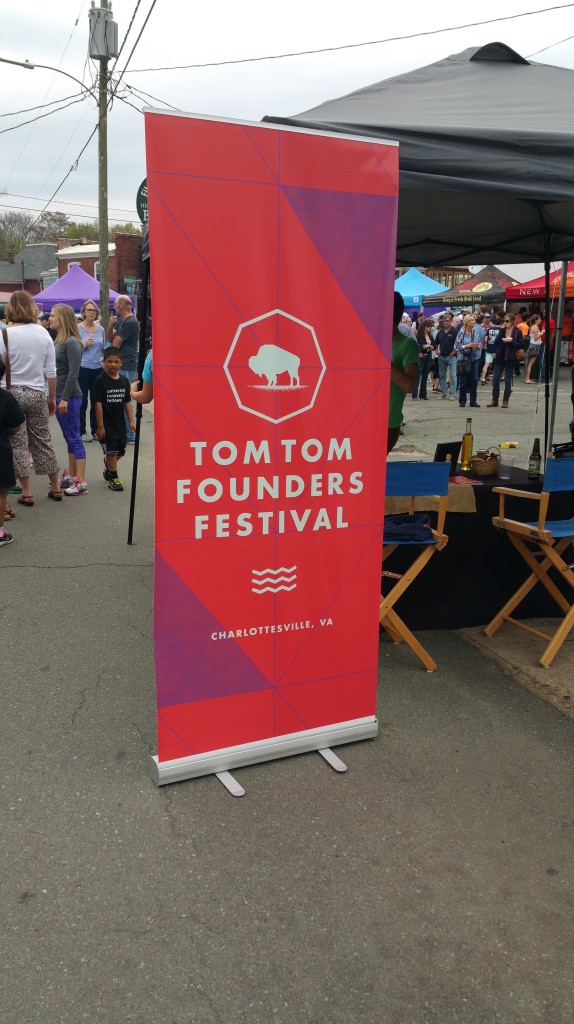
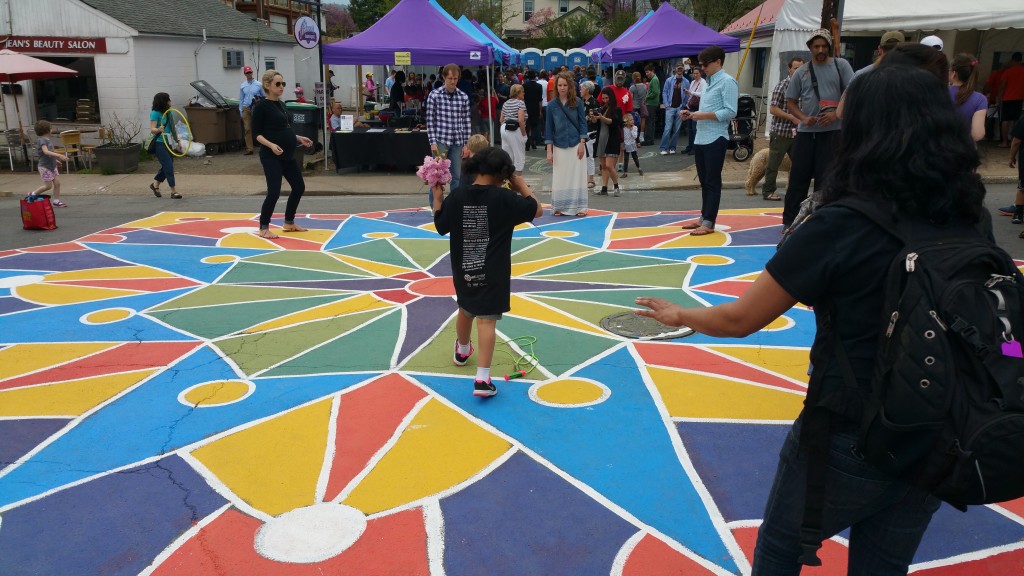
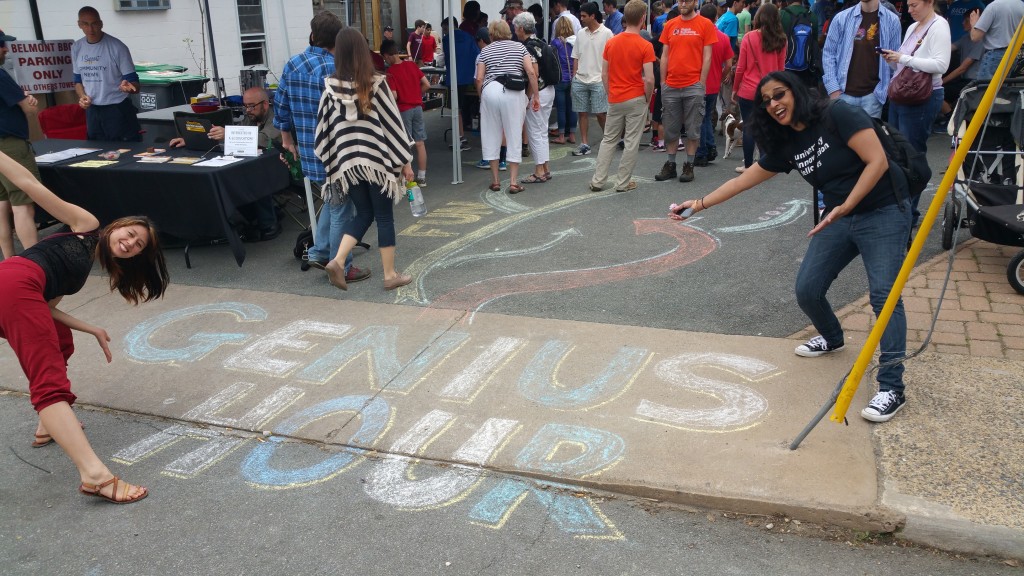 There, we attended the Genius Hour — an event for makers of all ages — and saw many K12 and collegiate-level projects. It was described as “…a celebration of tech enthusiasts, crafters, educators, tinkerers, hobbyists, engineers, artists, and students.” We had the opportunity to meet one of the organizers, Nate, a senior at UVa, who reached out to TomTom Fest organizers and pulled together the community to exhibit their creativity. As a program, we had heard we were making a difference (from both faculty sponsors and Fellows), but we were blown-away as community members recognized our University Innovation Fellows t-shirts at TomTom Fest.
There, we attended the Genius Hour — an event for makers of all ages — and saw many K12 and collegiate-level projects. It was described as “…a celebration of tech enthusiasts, crafters, educators, tinkerers, hobbyists, engineers, artists, and students.” We had the opportunity to meet one of the organizers, Nate, a senior at UVa, who reached out to TomTom Fest organizers and pulled together the community to exhibit their creativity. As a program, we had heard we were making a difference (from both faculty sponsors and Fellows), but we were blown-away as community members recognized our University Innovation Fellows t-shirts at TomTom Fest.